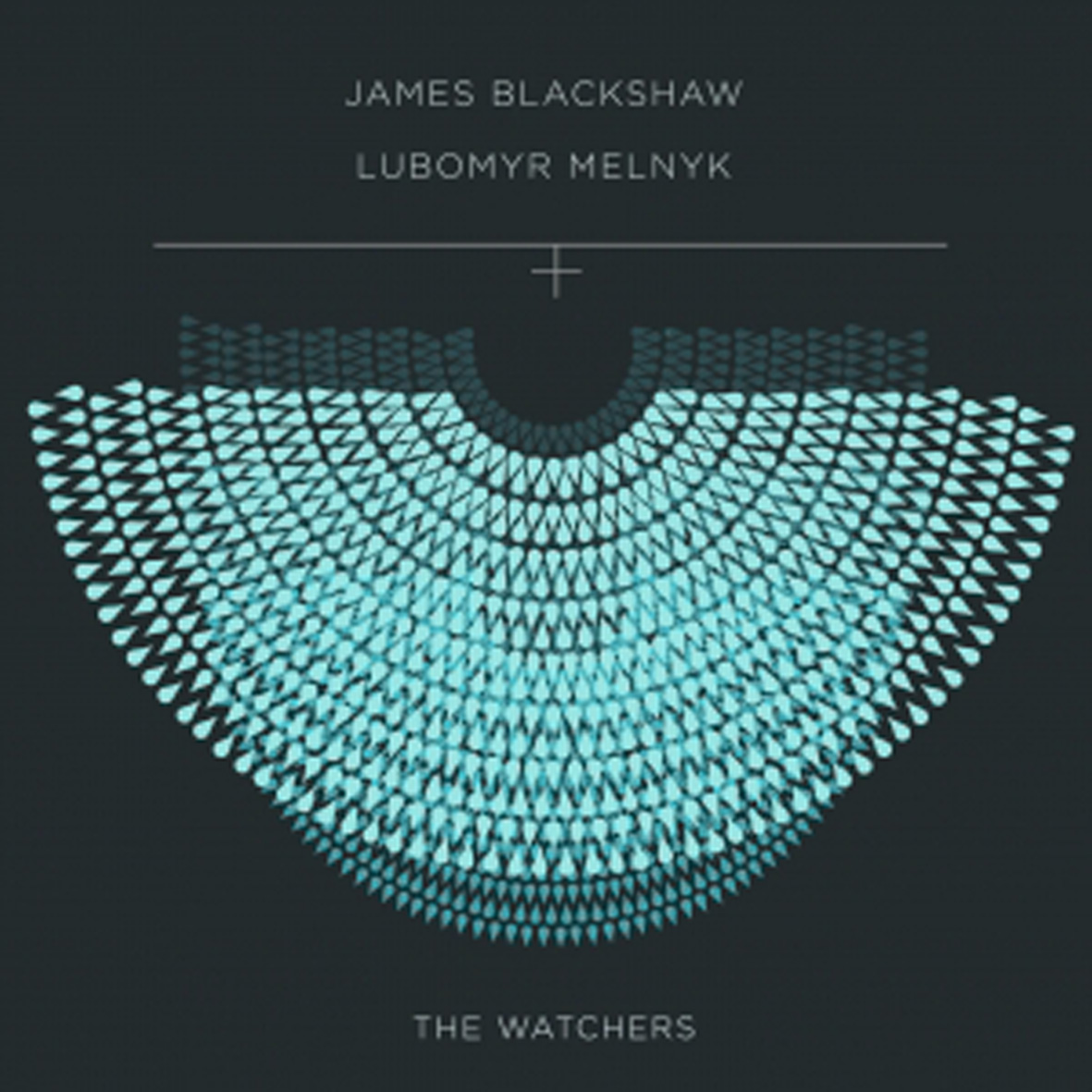James Blackshaw & Lubomyr Melnyk, "The Watchers"
 In a very real sense, The Watchers is an endearing improbable album that captures a magical and ephemeral union between two like-minded virtuosos playing together for the first time.  The catch, unfortunately, is that the magic was something of a closed-loop: while the two musicians flowed together as seamlessly and intuitively as old friends, the end product basically sounds like a rough sketch for an unfinished James Blackshaw album (albeit one where Blackshaw himself is often perversely relegated to the background).
In a very real sense, The Watchers is an endearing improbable album that captures a magical and ephemeral union between two like-minded virtuosos playing together for the first time.  The catch, unfortunately, is that the magic was something of a closed-loop: while the two musicians flowed together as seamlessly and intuitively as old friends, the end product basically sounds like a rough sketch for an unfinished James Blackshaw album (albeit one where Blackshaw himself is often perversely relegated to the background).
This is my first exposure to Melnyk's work, which surprises me, as he is quite a noteworthy fellow.  For one, he is the fastest piano player on the planet, a claim bolstered by the fact that he actually holds two world records for it.  More significantly, however, he has forged his own unique strand of minimalism that he calls "continuous music."  Rather than using his prodigious speed for blinding multi-octave runs, Lubomyr unleashes a vibrantly rippling sea of arpeggios and patterns that leaves a fog of overtones in its wake. A greatly modified version of that approach can be found in much of Blackshaw's recent work as well, which is no surprise, as Melnyk has been one of his influences for a while.
In fact, the two originally met when James bought some albums from Lubomyr at an Estonian music festival back in 2008.  While they immediately hit it off, it took almost four years for both of them to wind up anywhere near each other again, which occurred when Melnyk played his first London show in 2012.  He and Blackshaw convened the following day at the Vortex Jazz Cafe and improvised these four pieces over the course of six hours, allowing themselves a maximum of two takes for each one.
While neither musician is known for their improv skills, both seemed to handle the challenge ably, as they are clearly on the same wavelength from the first note.  Unfortunately, The Watchers is hamstrung by some issues that are far more fundamental.  For one, the man behind the idea of continuous music unsurprisingly plays continuously.  Secondly, pianos are significantly louder and more resonant than acoustic guitars.  That combination makes for a very strange outcome, as all four pieces (named after the Royal stars) sound very much like James Blackshaw pieces with very "James Blackshaw" chord progressions, but the intricacies of what Blackshaw is actually playing on his 12-string are sometimes very hard for human ears to hear (particularly when Lubomyr starts to open up).  Yet somehow James still seems to be the one leading, as Lubomyr's clearer and more melodic arpeggios seem to change with Blackshaw's tremelo-picked coloration.
Another problem is that of dynamics, as both musicians are playing continuously, which makes the entire album blur together a bit.  On some occasions, such as near the end of "Venant," Blackshaw finds the space to contribute an actual melody, but it is usually only his furiously tremelo-picked single notes and chords that are able to break through Melnyk's rippling cascade and its lingering haze of overtones. That is not necessarily a failure, but it is a bit unsatisfying, as it basically sounds like an incredibly dexterous classical pianist playing the chord progressions to a James Blackshaw album in an extremely maximalist minimalist way while James provides subtle color and texture through an uncomfortably enormous expenditure of energy.
For a one-time improv set from non-improv guys, I suppose that is not too shabby, but the beautiful transitions, melodies, and complexities that elevate Blackshaw's recorded work into something great are simply not present here.  Of course, Melnyk's aesthetic is diluted as well, but that is not quite as striking, as The Watchers does not sound at all like a Lubomyr Melnyk album.  Hopefully, James and Lubomyr will someday find time to actually compose and record in a studio together, as it seems a bit tragic that the sole documentation of their promising union is a spontaneous performance outside of either man's true area of expertise.
 



